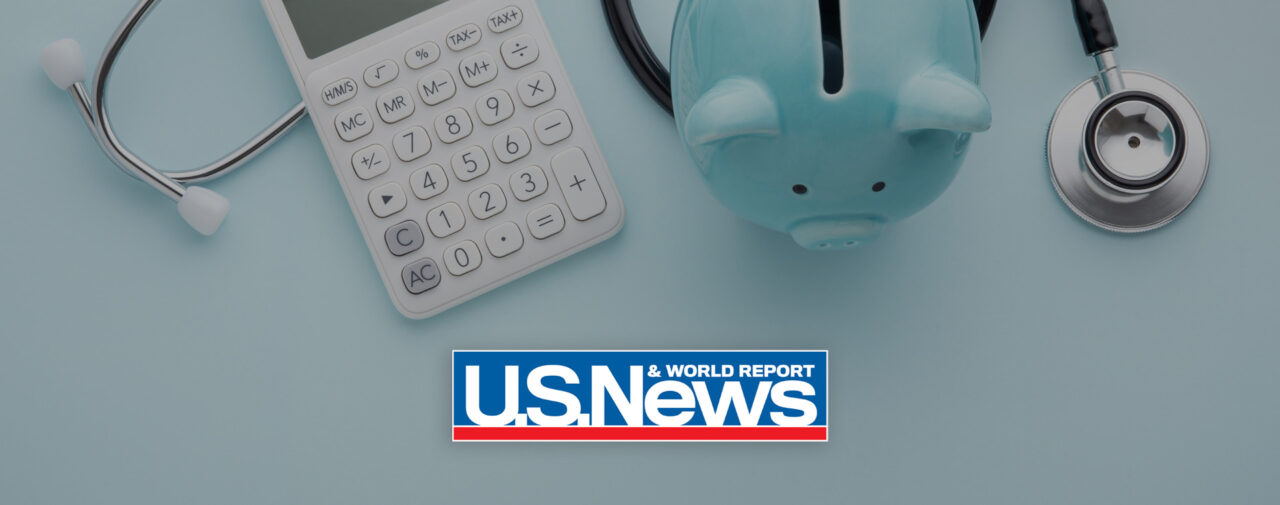
10 Things You Didn’t Know You Could Use Your HSA For
A health savings account can be used to pay for more than doctor visits and prescription drugs. Learn about these HSA-qualified expenses.
Anyone with a qualified high-deductible health insurance plan can open a health savings account, also known as an HSA. Money deposited into these accounts is tax-deductible and can be used tax-free to pay for eligible medical expenses.
"The definition (of eligible expenses) is so vast that it covers things people never even thought about," says Kristian Finfrock, a financial advisor and founder of Retirement Income Strategies, which has four locations in Wisconsin.
In addition to doctor bills, hospital stays and prescription drugs, HSAs can also pay for the following items, which might surprise you:
- Over-the-counter medications.
- Menstrual products.
- Alternative treatments.
- Travel for health care.
- Dental and vision care.
- Guide dogs.
- Some insurance premiums.
- Medicare costs.
- Future medical expenses.
- A retirement fund.
[ READ: Flexible Spending Account Vs. Health Savings Account: Which Is Better? ]
Over-the-Counter Medications
The Coronavirus Aid, Relief and Economic Security – or CARES – Act may be best known for providing stimulus checks to citizens and financial aid to businesses during the COVID-19 pandemic. But it also expanded the items eligible for HSA reimbursement, says Leif O'Leary, CEO of Alegeus, which provides a cloud-based platform for administering health care benefits accounts.
Under the CARES Act, over-the-counter products and medications are eligible for reimbursement from an HSA, no prescription required. However, the new rules only apply to purchases made after Dec. 31, 2019.

Menstrual Products
Along with over-the-counter medications, menstrual products were also included in the CARES Act as newly eligible for HSA reimbursements. Products must be purchased after Dec. 31, 2019, to qualify, and eligible items include pads, liners, tampons, cups and similar items designed for period protection.
Alternative Treatments
Acupuncture, chiropractic care and weight-loss programs may all qualify for tax-free reimbursement from a health savings account. "You can use your HSA even if your insurance won't pay for them," says David Shuley, co-founder and principal of Northwestern Mutual's Private Client Group, Esteem Wealth Partners in Cincinnati.
Travel for Health Care
The cost of meals and lodging at a hospital or similar institution may be reimbursable from an HSA, so long as medical care is your main reason for being there, according to Lori MacDonald, cash management manager at Citizens Equity First Credit Union, which is based in Peoria, Illinois.
If you are a parent traveling with a sick child, you may be able to reimburse expenses for both yourself and your child, up to a limit. "It is the HSA owner's responsibility to determine whether withdrawals are qualified or consult with their competent tax advisor," MacDonald notes.
[ READ: How to Pick a Health Insurance Plan. ]

Dental and Vision Care
Use an HSA to save money on dental care, eye exams, eyeglasses and more. Regardless of whether you have insurance coverage for these services, you can use your health savings account to pay for expenses using tax-free dollars.

Guide Dogs
Those with physical disabilities, such as vision or hearing impairment, can use money from their HSA to pay for the cost of buying, training and maintaining a guide dog or service animal.
"You could probably make the argument for an emotional support dog," Finfrock says. However, the IRS specifies service animals so it's best to consult with a qualified tax professional to confirm your dog qualifies.
Some Insurance Premiums
"One of the biggest worries people have as they age is how do they pay for long-term care," Shuley says. Long-term care insurance can help alleviate that concern, and an HSA allows policyholders to pay their premiums using tax-free dollars. Some hybrid policies, which combine long-term care benefits with life insurance, may not qualify though.
Health savings accounts can also be used to pay for COBRA coverage, which workers may be able to purchase after leaving a job, or health insurance for someone who is collecting unemployment benefits. Beyond that, they cannot generally be used for other medical plan premiums.
Medicare Costs
As government health care for those age 65 and older, Medicare provides comprehensive benefits, but it isn't free. "A lot of us underestimate the significance of that cost," O'Leary says. HSAs can be used to pay for both Medicare premiums as well as out-of-pocket expenses such as copays and co-insurance.
Future Medical Expenses
One of the benefits of an HSA is the ability to roll over the balance each year. "With an HSA, you are not required to take a distribution to reimburse yourself in the same year you incur the medical expense," MacDonald says. That makes this a prime savings vehicle to put away cash to cover future medical expenses or wait and reimburse yourself later for prior costs.
A Retirement Fund
Although not its original intent, an HSA can provide another avenue for people to save for retirement. "These are my favorite tools ever created in the tax code," Finfrock says. He describes a health savings account as a "Roth IRA on steroids."
Both HSAs and Roth IRAs can provide tax-free money in retirement, but HSAs come with the added benefit of a tax deduction for contributions. Plus, there are no income limits on who can open an HSA or receive a deduction. Anyone with a qualified high-deductible health insurance plan can contribute – and deduct – the following amounts in 2021: $3,600 for self-only coverage or $7,200 for family coverage. In either case, workers age 55 and older are allowed to make an additional $1,000 in catch-up contributions.
Money in a health savings account can be used tax-free for qualified medical expenses at any time but withdrawing money for other reasons incurs a tax penalty plus income tax. However, at age 65, the penalty disappears and nonmedical distributions are only subject to income tax, allowing them to serve essentially the same purpose as a traditional IRA.

Maryalene LaPonsie has been writing for U.S. News & World Report since 2015 and covers topics including retirement, personal finance and Social Security.
Ms. LaPonsie has spent more than 20 years writing professionally, with a particular focus on finance for the past decade. In addition to U.S. News, she is a regular contributor to Money Talks News and her work has been featured on MSN, CBS MoneyWatch, Yahoo Finance and elsewhere. Ms. LaPonsie is co-founder of Lowell’s First Look, a micro-news site, which was named the Best Business to Watch in 2019 by the Lowell Area Chamber of Commerce.
A native of Michigan, Ms. LaPonsie received her bachelor’s degree from Western Michigan University.
Read the original article on the U.S. News & World Report website.
